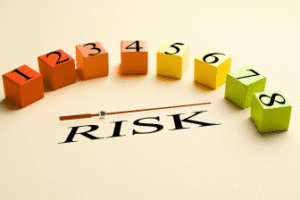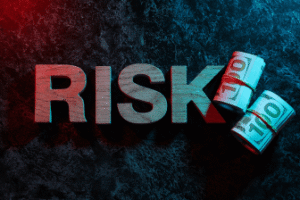
How to Choose the Right Risk Management Class: Guide for 2025
How to Choose the Right Risk Management Class: A Complete Guide for 2025
In a rapidly evolving business landscape, managing risk is no longer optional — it is a core leadership skill. Every industry, from finance and insurance to technology and manufacturing, faces its own unique risks. Focusing on these risks is vital for long-term success.
Taking a risk management class can help you build a stable and future-proof career.
However, with so many institutions offering courses, choosing the right one can be confusing. The institution you select will directly impact your learning quality, employability, and long-term career growth.
This guide explains how to identify the best risk management class, what to expect, and why GRMI’s PGDRM stands out for future risk professionals.
Recognise the Value of a Risk Management Class:
Before choosing a course, understand why a risk management class is valuable. The business world is full of uncertainty — economic downturns, market swings, regulatory changes, and technological disruptions are now normal. Professionals who can identify, assess, and reduce risks are valued in every industry. A good course teaches not only technical tools but also strategic thinking and crisis management. Whether you work in finance, operations, or marketing, knowing how to manage risks makes you indispensable. When comparing courses, ensure the programme aligns with your career goals and balances theory with practical learning.
Review Curriculum and Learning Outcomes
The curriculum determines the strength of a risk management course. Choose one that covers both basic and advanced concepts.
A strong course should include topics such as:
- Fundamentals of enterprise and financial risk
- Quantitative risk assessment methods
- Market, credit, and operational risks
- Compliance, governance, and regulatory frameworks
- Business continuity and crisis management
- Risk analytics and data interpretation
Look for programmes offering real-world case studies and simulations with industry tools.
Avoid classes that are purely theoretical. Practical exposure ensures you gain skills employers value.
When comparing diploma or certificate courses, confirm that the syllabus includes these essential topics.
Assess Faculty Credentials and Industry Exposure
Faculty quality sets great institutions apart from average ones.
Choose a school with experienced professionals who have worked in risk management roles. Good faculty bridge the gap between theory and business realities, helping students make better career decisions.
Institutions offering guest lectures, symposiums, and corporate collaborations provide valuable networking.
Hands-on projects and case studies also enhance decision-making skills and prepare students for real challenges.
Investigate Accreditation and Recognition
Always verify an institution’s accreditation before enrolling.
If you plan to work for multinational companies, global recognition becomes even more important.
Accredited courses follow international academic standards, ensuring credibility and value.
A recognised diploma or certificate boosts your résumé and builds trust with employers.
Accreditation not only enhances your qualification but also secures your long-term career growth.
GRMI – India’s Preeminent Provider of Risk Management Education
If you want a premier risk management institute in India, GRMI leads the field.
Its curriculum, expert faculty, and strong industry engagement make it unique.
The Post Graduate Diploma in Risk Management (PGDRM) prepares students to understand enterprise risk in depth.
The course takes a multidisciplinary approach, combining theory with practical exposure.
It covers financial, operational, and strategic risks, including emerging technological risks. Industry professionals help design the curriculum, ensuring it reflects current market needs.
Programme Highlights of GRMI’s PGDRM:
- Comprehensive Curriculum: Includes quantitative analysis, enterprise frameworks, compliance management, and business continuity.
- Industry Interface: Senior practitioners from leading companies guide students through workshops and consulting projects.
- Global Perspective: International case studies and best practices prepare students for global opportunities.
- Career Growth: GRMI’s corporate partnerships in finance, consulting, and risk management help students secure top placements
Align the Programme with Your Career Goals
Once you shortlist a course, connect it with your career aims.
If you work in finance, a programme covering market and credit risk — like GRMI’s PGDRM — will suit you.
Operations or supply chain professionals should focus on enterprise or strategic risk modules.
MBA students or recent graduates benefit from GRMI’s multidisciplinary framework, which builds strong professional foundations.
Select a programme that allows flexibility and specialisation to match your long-term goals.
Evaluate Return on Investment (ROI)
Treat your education as a career investment.
Compare not only course fees but also placement outcomes and future growth opportunities.
Consider how well the course connects you with industry networks and mentors.
GRMI’s PGDRM offers excellent value with global-standard teaching, practical projects, and strong professional exposure.
This creates a high return on your investment in both knowledge and career advancement.
Conclusion: Think Smart, Lead Confidently
Choosing the right risk management class means finding balance — between academics, real-world exposure, and career alignment.
In today’s uncertain world, professionals who can lead through risk are in high demand.
Institutes like GRMI provide the ideal platform. The PGDRM course blends practical learning, industry mentorship, and strong placement support.
It remains one of India’s best risk management programmes for aspiring professionals.
If you’re ready to advance your career and lead confidently, GRMI’s Post Graduate Diploma in Risk Management is your gateway.
Think smart, act decisively, and prepare to lead — not just manage — in the world of risk.
FAQ’s
Q1: Why should I enrol in a course on risk management?
Ans: You may efficiently manage company uncertainty by taking a risk management course. It develops analytical, crisis-management, and decision-making abilities that are highly sought after by employers.
Q2: What qualities ought to be present in a quality risk management certificate course?
Ans: Seek out a school that offers a good balance between theoretical and hands-on instruction. Look for case studies, practical projects, and knowledgeable instructors.
Q3: What distinguishes GRMI’s PGDRM course?
Ans: The PGDRM programme at GRMI blends industry exposure with academic instruction. In order to prepare students for actual issues, it incorporates workshops, live projects, and international case studies.
Q4: After finishing GRMI’s PGDRM, what professional options are available?
Ans: Graduates can find employment in operations, corporate risk, consultancy, or financial services. Placement chances are also supported by GRMI’s robust industrial network.
Q5: In 2025 and beyond, is a profession in risk management a wise choice?
Ans: Yes, there is a growing need for qualified risk professionals throughout the world. Every company requires professionals who can confidently evaluate and handle new threats.
For any queries please fill the form
You may also like

Which careers are truly safe from layoffs in 2026?

What Are the 3 Types of Credit Risk?


